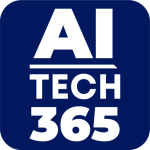Turning evidence from prospective research into structured medical recommendations through comprehensive evidence synthesis can be daunting for healthcare organizations. With the introduction of Ovid Guidelines AI, Wolters Kluwer is developing an agentic Generative AI (GenAI) workflow solution to accelerate this process and ensure clinical practice guidelines remain timely, trusted, and aligned with the latest research.
Building on a long-standing publishing relationship, Wolters Kluwer and the American Society of Clinical Oncology (ASCO) are expanding their shared efforts to advance evidence-based cancer care. At the upcoming 2025 ASCO Annual Meeting, the two organizations will appear alongside Google Cloud in the “AI and Oncology” area in Lakeside Lounge to showcase the ASCO Guideline Generator, the first early adoption of Ovid Guidelines AI. The new technology, which will be available in early 2026, will help accelerate clinical practice guideline development at ASCO, enabling authors to develop continually updated guidelines.
“Cancer researchers and care providers need every advantage they can get to put new discoveries and evidence into action,” said Stacey Caywood, Chief Executive Officer, Wolters Kluwer Health.“Building innovative AI solutions for these teams gives us the opportunity to scale the transformation of vital new evidence from clinical trials into structured recommendations that can help improve care for cancer patients.”
AI-powered guideline management comes to the forefront
Ovid Guidelines AI—Wolters Kluwer Health’s first agentic GenAI solution—places scientific rigor at the center of AI-powered clinical practice guideline creation. By embedding industry gold standards such as Preferred Reporting Items for Systematic reviews and Meta-Analyses (PRISMA) and Grading of Recommendations Assessment, Development, and Evaluation (GRADE) directly into the workflow, the platform supports guideline authors in documenting, justifying, and updating recommendations with full methodological transparency. This workflow brings automation to the more labor-intensive, error-prone research tasks in managing guidelines. The solution supports end-to-end guideline lifecycle management by uniting researchers, expert panels, and review boards through a shared, auditable environment for coordinating projects and capturing key evidence, deliberations, and decisions over time.
Also Read: Viz.ai Teams With Sanofi & Regeneron on COPD Care
Evidence-based cancer research delivered when and where it is needed
ASCO is uniquely positioned as the most trusted and authoritative voice for oncology professionals in the US and worldwide. Leveraging this expertise, Wolters Kluwer is collaborating with ASCO to bring its thought leadership into the design and development of Ovid Guidelines AI. The ASCO Guidelines Generator will make ASCO among the first to operationalize Ovid Guidelines AI, setting a precedent for GenAI-enabled, evidence-based oncology practice.
“AI-powered tools, including the recently launched ASCO Guidelines Assistant and the soon-to-come ASCO Guideline Generator, will enhance the discoverability of content, simplify the utilization and production of guidelines, and improve patient care,” said Clifford A. Hudis MD, FACP, FASCO, Chief Executive Officer, ASCO.
Agentic AI streamlines medical research tasks
Together with ASCO, Wolters Kluwer is also leveraging Google Cloud technology in the development of GenAI features for Ovid Guidelines AI.
“We are committed to applying our AI innovations to address real-world challenges in critical fields like healthcare,” said Aashima Gupta, Global Director, Healthcare Strategy & Solutions, Google Cloud. “Teaming up with ASCO and Wolters Kluwer allows us to improve the future of cancer care, as oncologists will be able to access ASCO’s trusted, evidence-based guidelines to care for their patients.”
Through this collaboration, Wolters Kluwer will leverage Google’s advanced Gemini models and Google Cloud’s Vertex AI platform to accelerate natural language understanding, data ingestion, and clinical content processing. These capabilities complement Wolters Kluwer’s proprietary GenAI framework and agentic workflows, enabling more scalable, intelligent, and trustworthy AI-driven solutions for clinical practice guideline development.
Source: Businesswire

